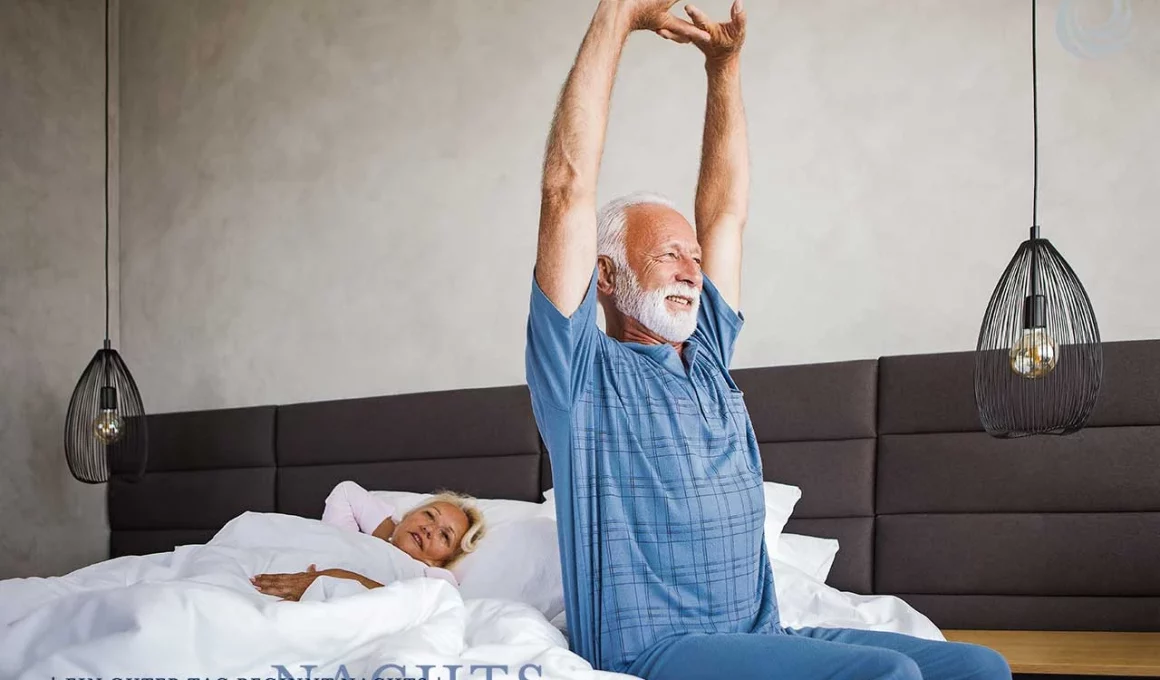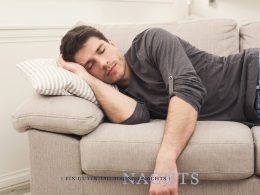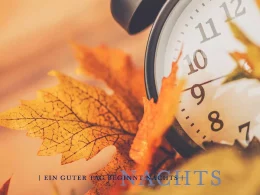The term “senile insomnia” is often used with a wink. This refers to the reduced sleep time of older people, which often results in them getting up excessively early. But what exactly is senile insomnia? Does the phenomenon really exist?
Is getting up early a question of age?
The fact is that people’s sleep behavior and need for sleep changes over the course of their lives. Newborns feel as if they sleep all day and even babies usually need between 11 and 14 hours of sleep per day. Generally speaking, however, the older you get, the less sleep you need. As a result, many people over the age of 60 have a very short sleep duration of 7 to 8 hours. Moreover, this is often spread over several short naps throughout the day, which naturally reduces the amount of sleep at night.
It can therefore happen that grandparents are already awake in the middle of the night or at dawn, while younger family members are still blissfully asleep at the same time. This has gradually led to the term “senile bed-wetting” being coined to jokingly comment on older people getting up early or at night.
What is the significance of senile flight from bed from an evolutionary perspective?
The internal clock shifts throughout life. Teenagers and young people can stay awake late in the evening and like to sleep in in the morning. Older people, on the other hand, get tired earlier in the evening and are then awake early again. This shift is completely normal. It is assumed that hormones are responsible for the fact that the need for sleep and sleep behavior changes over the course of life.
This may also be due to evolutionary factors. In prehistoric times, when people still roamed around in family groups as hunters and gatherers and all slept together, different sleeping patterns in individual age groups were definitely an advantage. Keeping watch and warning and protecting the family from predators or other dangers was essential and necessary for survival at that time. The fact that the young stayed awake for a particularly long time and the older ones were awake early meant that keeping watch at night was optimally distributed within the family group. This means that the sleeping behavior of older people, commonly referred to as senile flight from bed, is probably due to evolution and makes perfect sense in terms of our evolutionary history.
What does senile bedwetting mean and what does it not mean?
The term senile insomnia does not normally correspond to the facts – literally speaking. This is because older people are not senile per se as soon as they regularly get up early. The term “senile” generally has a negative connotation and generally means that a person is no longer fit and resilient due to their advanced age – both physically and mentally. However, this applies to very few people who show signs of senile bedriddenness. Therefore, although this ironic term is humorous in some respects, it is not really flattering.
What can you do about senile bedwetting?
Even if the sleeping behavior of older people, which is often referred to as senile insomnia, is generally normal and no cause for concern, even people over 60 can counteract the effects of little sleep to some extent with optimal sleep hygiene. Because of the shorter sleep episodes, older people understandably tend to get tired more quickly during the day and are sometimes less able to concentrate. Regular bedtimes, light meals in the evening, abstaining from alcohol and nicotine as well as bedding tailored to individual needs can have a positive influence on the sleep behavior of older people and thus ensure more and longer-lasting rest during sleep














